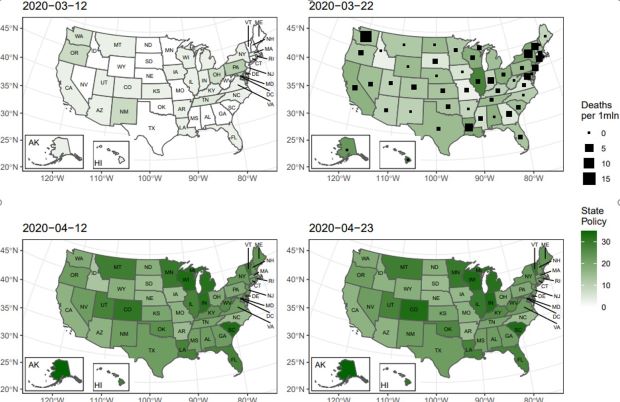PPI Global Data Set
To measure and compare the governments’ response to COVID-19 at the national and subnational levels, we have undertaken
COVID-19 Protective Policy Index (PPI) project
The PPI measures public health government responses to COVID-19 at all levels of government throughout the world. The PPI measure considers the extent of COVID-19 policy responses in the following categories: state of emergencies, border closures, school closures, social gathering and social distancing limitations, home-bound policies, medical isolation policies, closure/restriction of businesses and services, and mandatory personal protection equipment. The coding for public health policies is based on government announcements and reputable news sources reporting adoption of these policies.
Total, National, and Subnational Indices are calculated based on the standing public health policies adopted at various levels of government for each unit (state, province, etc.) for each day, by adding together the highest values across levels of government in each category on that day. Natiional and subnational PPIs were constructed with the values in each category from just national- or just subnational-level policies. The current version of the data set contains public health protective policies on the national and sub-national levels, while we plan to expand to the municipal level in the future. The unit of analysis is unit-day.
The complete methodology of the data collection and organization can be found here.
<Global Regions and Regional Curators>
Figure 1: Dynamics of Subnational PPI in the USA during the Early Onset Period
 |
DOWNLOAD: GLOBAL DATA SUB-NATIONAL DATA
Please cite this data as follows: Shvetsova, O., Zhirnov, A., Adeel, A.B. et al. Protective Policy Index (PPI) global dataset of origins and stringency of COVID 19 mitigation policies. Sci Data 9, 319 (2022). https://doi.org/10.1038/s41597-022-01437-9